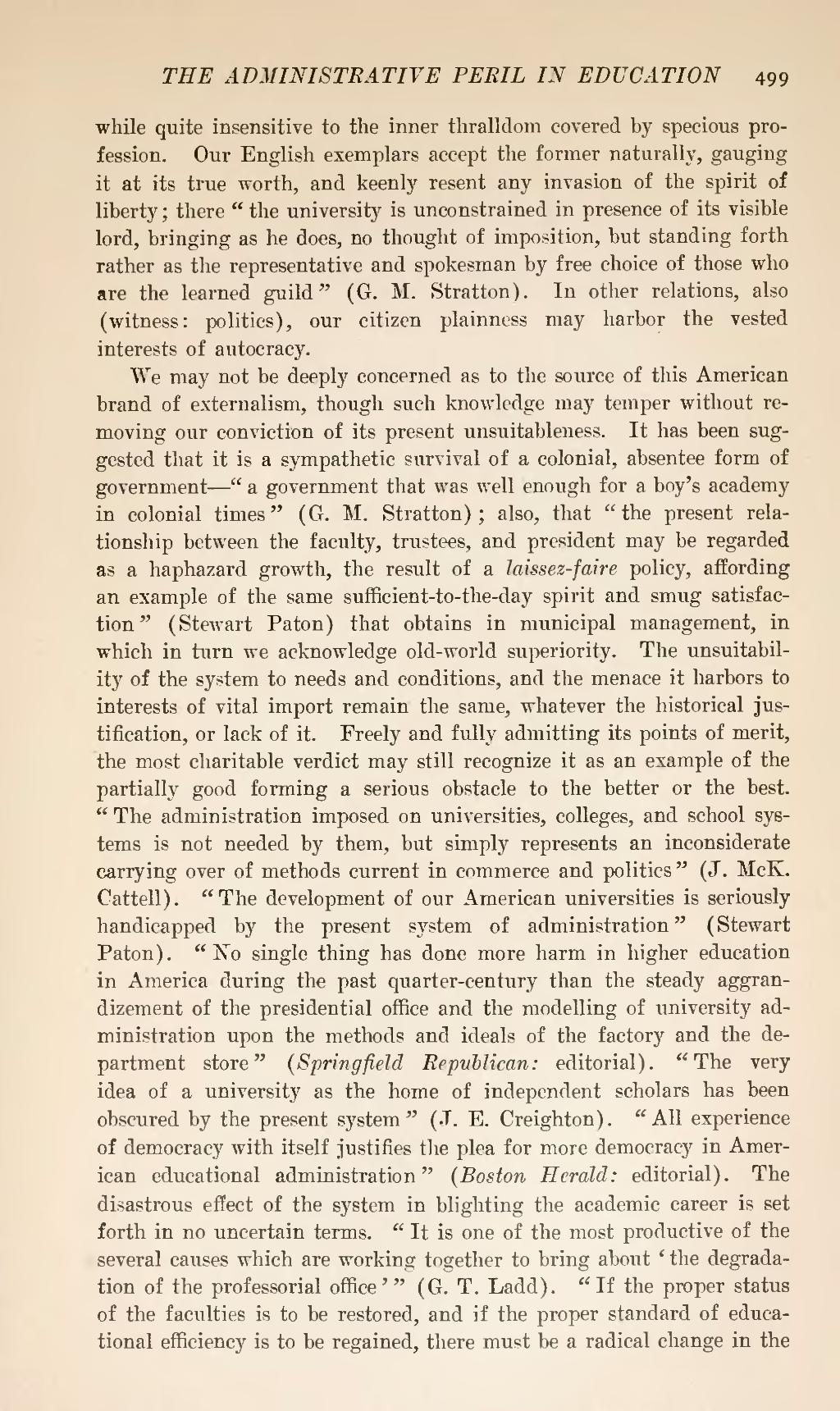while quite insensitive to the inner thralldom covered by specious profession. Our English exemplars accept the former naturally, gauging it at its true worth, and keenly resent any invasion of the spirit of liberty; there "the university is unconstrained in presence of its visible lord, bringing as he does, no thought of imposition, but standing forth rather as the representative and spokesman by free choice of those who are the learned guild" (G. M. Stratton). In other relations, also (witness: politics), our citizen plainness may harbor the vested interests of autocracy.
We may not be deeply concerned as to the source of this American brand of externalism, though such knowledge may temper without removing our conviction of its present unsuitableness. It has been suggested that it is a sympathetic survival of a colonial, absentee form of government—" a government that was well enough for a boy's academy in colonial times" (G. M. Stratton); also, that "the present relationship between the faculty, trustees, and president may be regarded as a haphazard growth, the result of a laissez-faire policy, affording an example of the same sufficient-to-the-day spirit and smug satisfaction" (Stewart Paton) that obtains in municipal management, in which in turn we acknowledge old-world superiority. The unsuitability of the system to needs and conditions, and the menace it harbors to interests of vital import remain the same, whatever the historical justification, or lack of it. Freely and fully admitting its points of merit, the most charitable verdict may still recognize it as an example of the partially good forming a serious obstacle to the better or the best. "The administration imposed on universities, colleges, and school systems is not needed by them, but simply represents an inconsiderate carrying over of methods current in commerce and politics" (J. McK. Cattell). "The development of our American universities is seriously handicapped by the present system of administration" (Stewart Paton). "No single thing has done more harm in higher education in America during the past quarter-century than the steady aggrandizement of the presidential office and the modelling of university administration upon the methods and ideals of the factory and the department store" (Springfield Republican: editorial). "The very idea of a university as the home of independent scholars has been obscured by the present system" (J. E. Creighton). "All experience of democracy with itself justifies the plea for more democracy in American educational administration" (Boston Herald: editorial). The disastrous effect of the system in blighting the academic career is set forth in no uncertain terms. "It is one of the most productive of the several causes which are working together to bring about 'the degradation of the professorial office'" (G. T. Ladd). "If the proper status of the faculties is to be restored, and if the proper standard of educational efficiency is to be regained, there must be a radical change in the
